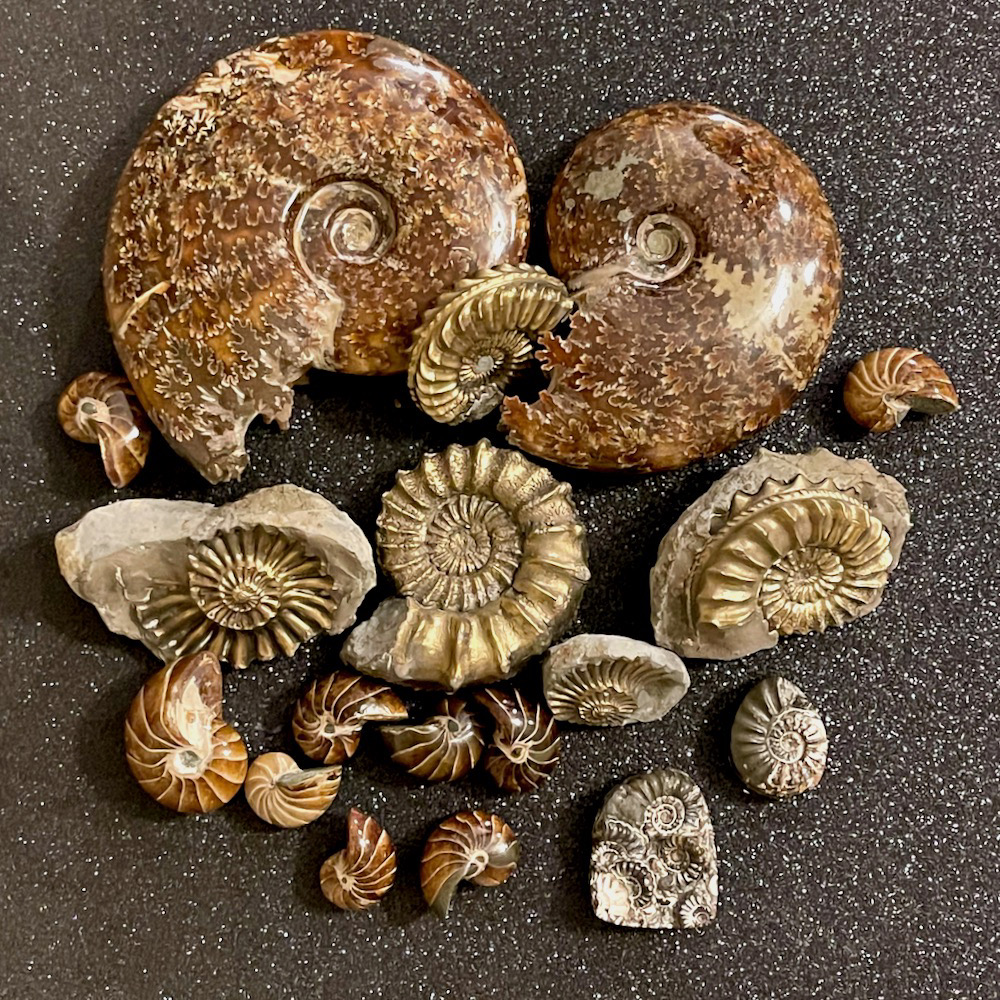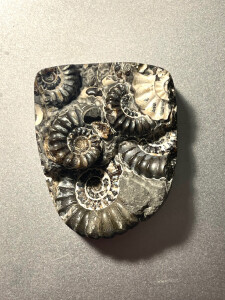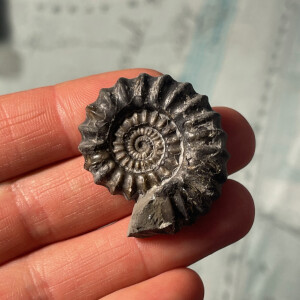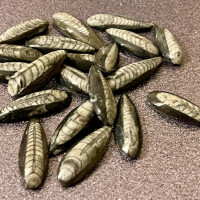At the 2022 Tucson Gem, Mineral and Fossil show we came across Marston Marble Ammonites, a new Ammonite source that we hadn’t seen before. These ammonite limestone beds are near the village of Marston Magna in Somerset, southwest England. The most prevalent specimens were collected during the 18th and 19th centuries and limestone slabs were quarried and prized as decorative marble. The dark limestone is crowded with small ammonite concretions and make beautiful patterns.
Ammonites are an extinct marine mollusk in the class of Cephalopoda. Ammonites thrived from the beginning of the Jurassic period, 201 million years ago through the Cretaceous period, about 66 million years ago. Their distribution was worldwide in shallow warm seas Along with the dinosaurs, they died out during the mass meteor extinction when photosynthesis was interrupted. Their fossil skeletons are found in sedimentary rocks worldwide and are a good stratigraphy indicator for scientists.
Ammonites and Belemnites are the extinct relative of today’s Nautilus. Nautili survived the mass extinction because they lived at deeper ocean depths. We added fossilized nautili and belemnites to our collection and Alisha will incorporate these into new designs this coming season







